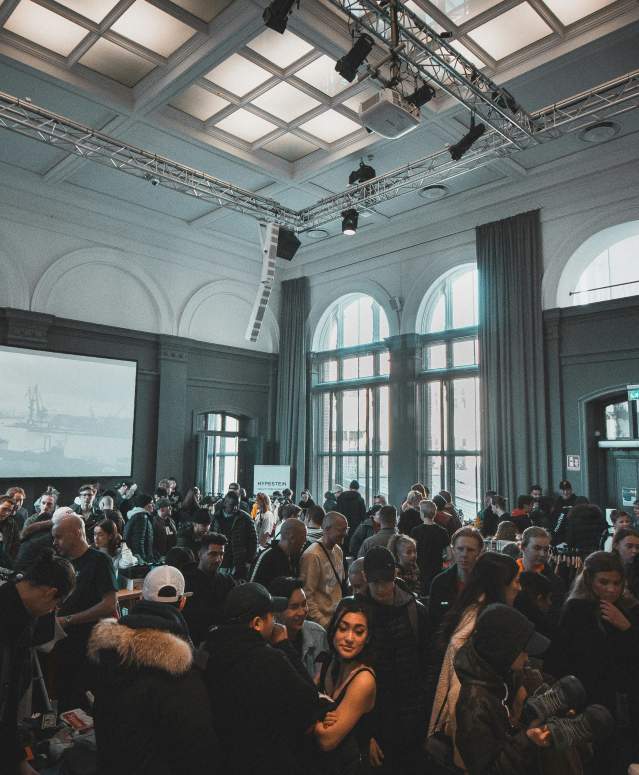Choosing Your Venue
Choosing the right venue for your event is important as it sets the stage for the overall experience, influencing accessibility, functionality and attendee comfort.
There are many factors to consider when choosing an event venue, including its size, location, cost, and facilities. The physical location in which your event occurs is part of its identity and the venue’s ability to cater to the needs of your target audience will shape your attendees’ experience.
Tips:
Choosing the right venue
There are five key steps to selecting the right venue for an event, including:
- identifying the event’s goals and requirements
- researching potential venues
- visiting and evaluating venues
- negotiating the venue rental contract, and
- securing the venue.
Alignment with the purpose and goals of your event
- Your venue should support the objectives of your event. For example, a high-end hotel may be an ideal place to hold a corporate gala or conference, while a stadium or bar may be better suited for a music concert.
- Ensure the venue’s ambience, identity, services, and location help achieve your event’s goals and add value to your attendees’ experience.
Size and capacity
- Venue size and capacity are important factors – how many people can fit and how comfortable will they be in that space?
- Overestimating is better than underestimating – consider both standing and seating capacities and account for any additional space needed for stages, activities, exhibits, or catering setups.
- Consider the movement of attendees around the venue space and how the scheduling of activities will affect the venue’s ability to cater to the crowd’s fluctuations.
Location and accessibility
- The venue’s location should be easily accessible and convenient for all attendees.
- Depending on the scale of your event, you may need to consider the proximity to carparking facilities, public transportation, airports and accommodation.
- A central location is generally preferable, but the right venue might sometimes be in a more remote area if it offers unique advantages.
- Consider both external accessibility to the venue and internal accessibility to the different zones or areas for your attendees.
Budget
- You should factor in the venue rental cost and any additional expenses that may be required to operate your event at that venue. A venue might be more cost-effective if the venue rental contract includes essential services that would otherwise be additional. Additional expenses to consider include:
- parking (does the venue have free parking onsite?)
- audio visual equipment / services
- extra space (luggage/bag or coat check or breakout room)
- licences (do you need a venue with an alcohol licence?)
- staging
- lighting
- portable toilets (for an outdoor venue)
- fencing, and
- security services.
- Venues may calculate costs differently – different price models can include overall venue hire with list of inclusions, a cost by space, a cost per person, or a minimum spend.
Amenities, facilities and contracted services
- Ensure the venue can provide any essential amenities to your event and its attendees or be prepared to plan for the provision of these yourself.
- Services such as food and beverage, Wi-Fi, power supplies, accommodation etc may or may not be part of the venue hire package.
- Some venues have contracted arrangements with suppliers that must be honoured. For example, you may need to use the catering or audio/visual services of the venue’s contracted partners. Without the ability to negotiate a rate and level of service that fits your budget, this can become a defining factor in your venue choice.
- Don’t forget about heating or cooling the venue. As well as budget and attendee comfort, the way temperature is controlled within the venue may have implications for environmental sustainability and how this aligns with your event’s purpose and identity.
Connectivity and surroundings
- Your venue should integrate well with its surroundings. If the event is part of a larger conference or near major attractions, choose a venue that complements these elements.
- The surroundings should also enhance the attendees’ experience, providing convenience and adding value.
Indoor and outdoor options
- Consider whether your event requires indoor, outdoor, or both types of spaces.
- Outdoor venues are great for festivals and casual events but require contingency plans for inclement weather.
- Indoor venues offer more control over the environment and are generally easier to decorate and customise for the attendee experience within.
- Some venues offer both options, providing flexibility and the ability to accommodate weather changes.
Site layout and mapping
- A detailed layout of the venue helps in planning the event logistics. Identify where the main activities will take place, location of restrooms, emergency exits, and other facilities.
- Ensure there is adequate signage, and that the layout supports easy navigation for all attendees.
- Some venues can provide a digital base map from which you can design your event’s site map. This is a great time-saving tool during both the planning and delivery stages.
Scheduling and logistics
- Ensure the timeframe your venue allows for pack-in and pack-out is realistic and aligns with your needs. Clearly identify whether these time periods are being charged for in the venue rental contract.
- Create a communication channel between your venue and contractors to ensure they are able to coordinate their areas of shared responsibility independently.
- Check if your venue can accept delivery of freight and event equipment on your behalf – this can be a great time-saver and allow you to focus your event staff’s time and presence elsewhere.
Useful Links:
- SouthlandNZ.com Event Venue Listings | https://southlandnz.com/events/event-planning-resources/event-venues/
- BEIA Business Event Planning Tool - Free Online Business Event Planning Tool | BEIA
Have you considered?
- How does your venue align with the goals and objectives for your event? View our Strategic Planning section for more information on setting event goals and objectives.
- What budget have you allocated for venue hire? Don’t forget to consider additional services that may not be included in the venue hire cost. View our Budgeting section for more information on planning your budget.
- Do you require an indoor or outdoor venue or both spaces?

